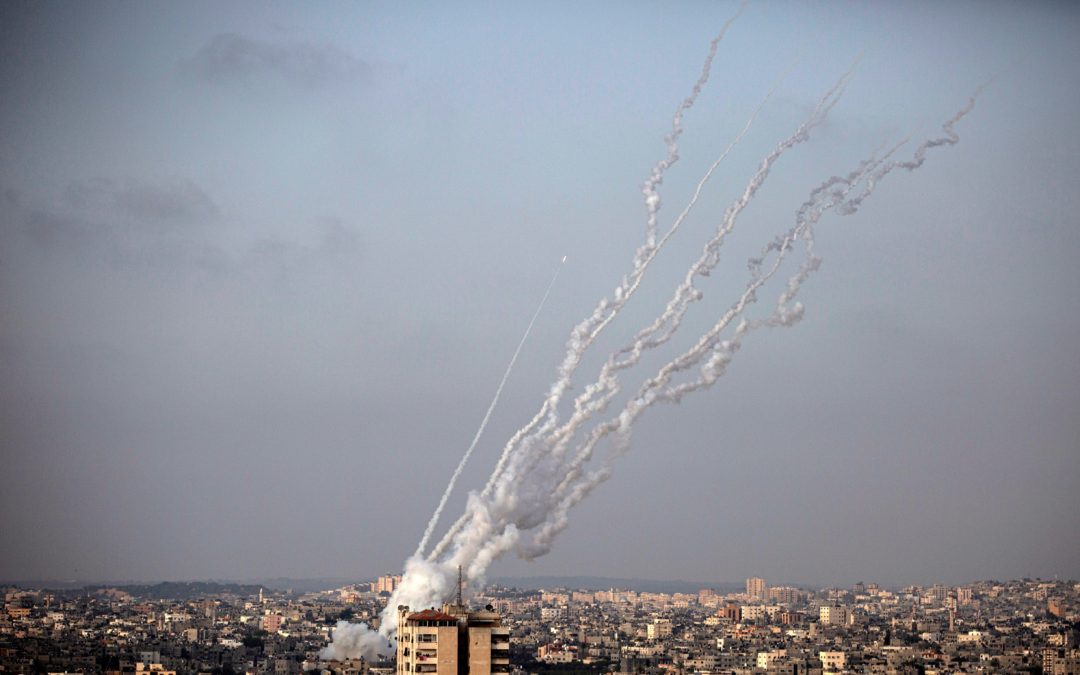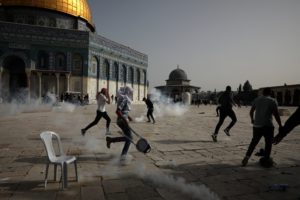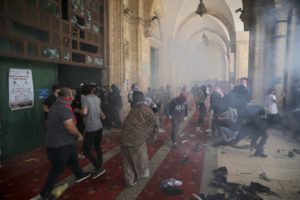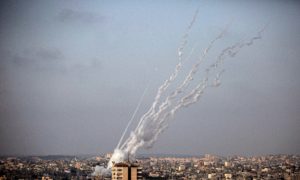by Monica M. Jones | Dec 1, 2021 | Headline News |
Video Courtesy of WKBW TV | Buffalo, NY
Turkey dinners, desserts for days, decorating the house, planning for parties, and power-shopping until the wee hours of the mornings — yes, it’s that time of the year. And just as Thanksgiving, Christmas, and New Year’s Eve come at the same time each year, without fail every holiday season, the very people you’re supposed to be cherishing are the ones who seem to bring you the most stress.
Unfortunately, the picture-perfect family dinner we see on television is not something that always translates to our personal situations. With crazy relational dynamics that can test one’s patience and sanity, there’s a bit of dysfunction in every family — and it’s often heightened during the holidays.
While on the surface certain family members may appear to be the enemy, they are people to whom God has connected you for a reason, and they’re often the first opportunity we have to learn to “love your neighbor.” As the old saying goes, “You can choose your friends, but you can’t choose your family.” With that in mind, here are five tips to help you navigate family drama during this most joyful season.
1. Learn how and when to say no. You can’t satisfy everyone in your family, and the quicker you realize that the better you and your family will be. Set boundaries for yourself and your personal relationships. With pressure to shop for gifts, attend holiday parties and family gatherings, as well as your usual everyday demands of work and family, it’s easy to get overwhelmed. You have to remember that you’re just one person, you can’t do everything. You may not be able to go to every party that you’re invited to and you may even have to make adjustments to plans for traveling to see different relatives. Set priorities and stick to them.
2. Accept your family’s differences. We all have that aunt or uncle who drinks a little too much and lets their mouths get them into trouble. Or there’s the cousin who always comes late with the main dish — so the family is waiting for hours to eat. Whatever your family scenario, remember that we all have our own idiosyncrasies that can be irritating — and honestly we all probably have a bit of crazy deep down inside. It doesn’t mean you condone or agree with certain behaviors, but you just don’t let it hang you up. Don’t sweat the small stuff that you can’t change.
3. Keep it simple. Whether it’s with gift-giving, hosting a family gathering, or cooking a dish for a family potluck — make it easy on yourself. While you may want to stick to traditions, it’s okay to make adjustments. Instead of cooking, maybe you can buy a prepared dish. You may want to do it all on your own as your mother did back in the day, but know that it’s okay to ask for help. Get other family members involved with planning and preparing holiday meals or gatherings. When it comes to gifts, stick to a budget. Be real about your financial situation; if you can’t afford to buy everyone — or anyone — a gift, it’s okay. Your presence really is enough.
4. Keep conversations light. Avoid hot-button issues during the holidays. Keep conversations light and focus on the good. Trying to flesh out unresolved conflicts at the dinner table is probably not a good idea — especially because of the spirit of the season. Try to find things that you have in common with your loved ones and bring those elements into your conversations. Often tension and angst arise from misunderstandings and miscommunication. Find common ground, which will help in the end to build stronger bonds that last beyond the Christmas dinner at Granny’s.
5. Take time out for yourself. Focusing on everyone else, it’s easy to forget about yourself. If it’s no more than 15 minutes or an hour, take some time for you. Do something you want to do. Seeing a movie, reading a book, journaling, exercising — whatever you need to do to tend to your mind, body, and soul do it. Even Jesus needed some time alone.
The Real Reason for the Season
When it’s all said and done, remember what the holidays are really all about. Taking time to be thankful for the blessings in your life, celebrating the birth of Christ and looking ahead to the New Year, it’s a time to reflect and put things in a proper perspective.
After all, Jesus had supper with Judas (who betrayed Him) and Peter (who would later deny Him). If He can forgive and show love, shouldn’t we follow His lead and extend grace to those special relatives who annually work our last nerve?
So how do you survive the stress that the holidays can put on family relationships? Share your thoughts and tips for coping below.

by Yonat Shimron, RNS | May 20, 2021 | Headline News |

Originally published May 12, 2021
(RNS) — Violence between Gaza and Israel intensified this week to levels not seen for years, with Hamas shooting hundreds of rockets toward the Tel Aviv metropolitan area and Israel retaliating with heavy strikes on Hamas targets in the Gaza Strip.
The buildup to the current conflagration — some are already calling it a new “intifada” or “uprising” — began several weeks ago in a Jerusalem neighborhood near the Old City, close to the Al-Aqsa Mosque, one of Islam’s holiest sites for more than 1,200 years.
While Muslims pray at Al-Aqsa year-round, the mosque attracts even more worshippers during Ramadan. Wednesday (May 12) marked the end of Ramadan and the start of Eid al-Fitr, a joyous time for millions of Muslims concluding a monthlong fast.
There’s no doubt that the most extreme Jewish nationalists would like Israel to recapture the Al-Aqsa Mosque because they say it sits on top of the ruins of the ancient Jewish Temple, the only remainder of which is the Western Wall.
But except for the setting of the conflict, faith is only tangentially related to the violence. Here’s a quick explainer on the conflict of the past few days, and what, if any, role religion plays.

Why did Israeli police raid the Al-Aqsa Mosque to begin with?
The Israeli government said the police responded after the Palestinians started throwing stones at them. Palestinians say the fighting really began when police entered the mosque compound on May 10 and started firing rubber-tipped bullets and stun grenades. More than 330 Palestinians were wounded. Israel said 21 of its officers were, too.
But the underlying tensions may have more to do with a set of clashes in the larger east Jerusalem area, which was captured by Israel in the 1967 Six-Day War and is home to about 350,000 Palestinians.
For weeks prior to the mosque violence, Palestinians had been protesting the threatened eviction of Palestinian families from the Sheikh Jarrah neighborhood of east Jerusalem. At night they would clash with police and far-right Jewish settlers.
Those clashes are in turn part of a long legal battle over who owns the property. Some Palestinians were relocated to Sheikh Jarrah by the Jordanian government in the 1950s after fleeing their homes during Israel’s War of Independence in 1948.
On May 10, the Israeli Supreme Court was set to decide whether to uphold the eviction of six families from the Sheikh Jarrah neighborhood in favor of Jewish settlers. The court has since postponed the ruling.
So this is a land dispute?
On a large scale, yes. In Sheikh Jarrah, in particular, the dispute originates in the 19th century, when Jews living abroad began returning to what is now Israel and buying properties from Palestinians who lived there. The Jordanians took over the land between 1948 and 1967. Israelis are now claiming it’s theirs again.
The dispute in Sheikh Jarrah takes on political overtones because the neighborhood is part of east Jerusalem, which Palestinians want name as the capital of a future Palestinian state encompassing the West Bank and Gaza. Many Israelis, regardless of their views about a Palestinian state, believe Jerusalem must remain “a Jewish capital for the Jewish people,” and under Israeli control.
What’s Hamas got to do with it?
The clashes between Israel and Palestinians in Jerusalem have united Palestinians far and wide, as have the larger disputes over their displacement and disenfranchisement by Israel. Hamas, the Islamist militant group that controls the Gaza Strip, located about 60 miles south of Jerusalem, sees itself as a defender of Palestinians.

Hamas is at root an Islamic organization born from members of the Muslim Brotherhood, and so it also cares deeply about the Al-Asqa Mosque, which Muslims call the Noble Sanctuary.
On May 12, Israel assassinated several Hamas commanders in retaliation for the barrage of rockets on Tel Aviv, Ashkelon and Israel’s main international airport in the city of Lod.
What role does Judaism or Islam play in this?
At heart, the Israeli-Palestinian conflict is a dispute over land. But religion is often the proxy for those disputes, pitting two different ethnicities and religions. Little wonder those tensions tend to flare around religious holidays, both Jewish and Muslim.
But Hamas’ main goal is not war with Judaism, but rather with Israel, which is occupying land it believes is inherently Palestinian.
As Hamas has become more emboldened over the years, so too, have Jewish nationalists. On Monday, May 10, which was Jerusalem Day, a national holiday celebrating the unification of Jerusalem, Jewish nationalists marched through the Old City of Jerusalem, including the Muslim Quarter, in a display that provoked and angered many Palestinians.
As often happens, the exclusive claims to parts of the holy city often turn deadly.




